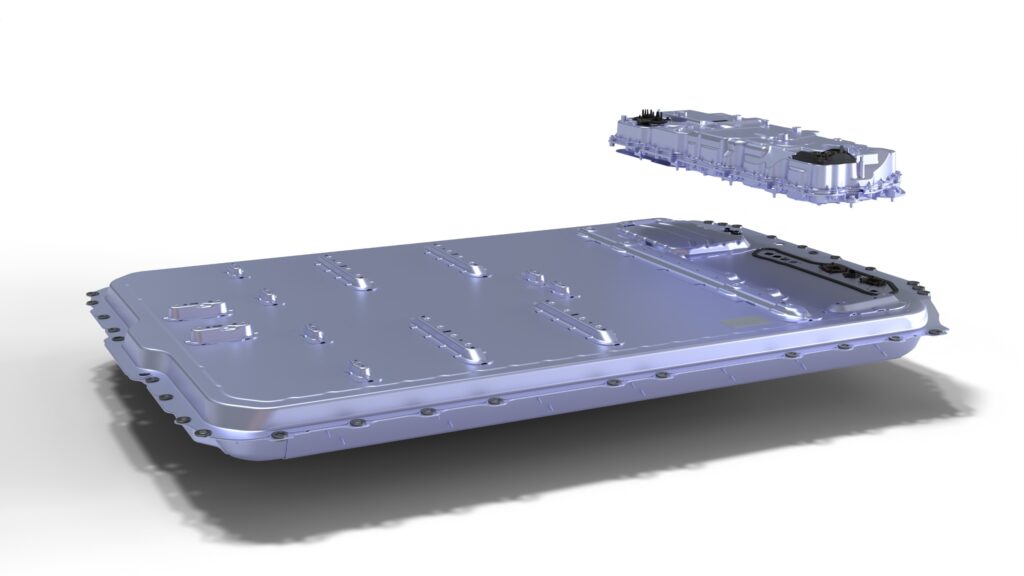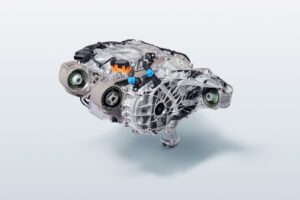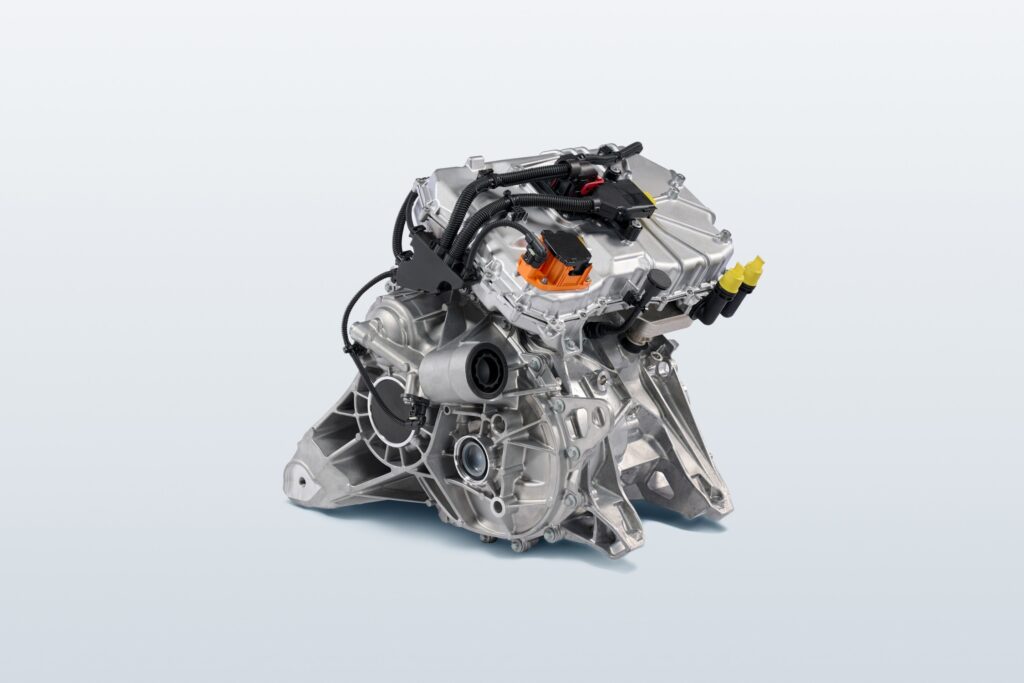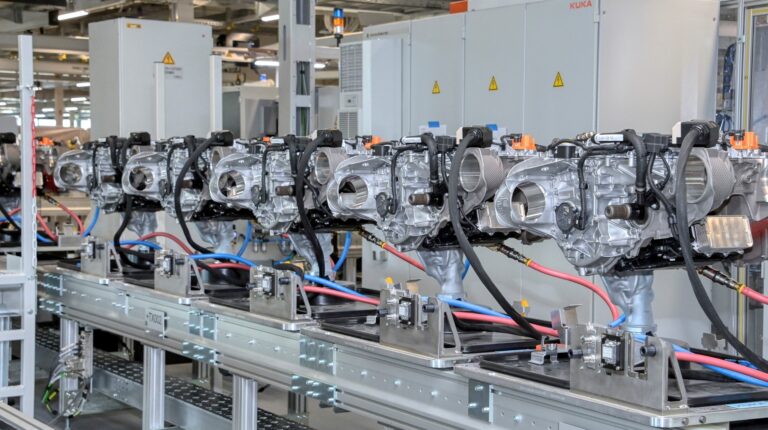BMW has revealed further details of the powertrain that will equip its Neue Klasse EVs. Central to the program are efforts to increase efficiency while reducing costs.
“For the BMW Group, electric mobility is the future and a key area of growth. We are leading the way with this drivetrain technology. At the same time, we are deliberately taking a technology-open approach, recognizing that mobility needs vary between different regions of the world,” explained Dr Joachim Post, member of the board of management of BMW, Purchasing and Supplier Network.
“We want to offer our customers the best drive concept for every need. It is possible to do both: offer the best drive technology for every need and be at the forefront of electric mobility.”
BMW will switch from the prismatic cell types used in its current battery packs to cylindrical cells, which it states have a 20% greater energy density. The packs will take on a greater structural role in vehicles and the cells will be integrated in a cell-to-pack arrangement (CTP). BMW has developed a new BMS to match, dubbed the Energy Master, which will oversee both pack management and energy distribution throughout the vehicle. 
The high-voltage batteries for the Neue Klasse will be assembled in five new production facilities that the BMW Group has located close to its vehicle plants as part of a “local for local” approach. These plants are located in Europe, the USA, Mexico and China.
We are deliberately taking a technology-open approach, recognizing that mobility needs vary between different regions of the world
Dr Joachim Post, member of the Board of Management of BMW
New EESM (electrically excited synchronous motor) drive units have been developed, and BMW has also introduced an ASM (asynchronous motor) optimized for cost and packaging performance. Though not confirmed, it is likely that these ASMs will be used in vehicles equipped with twin motors to provide performance boost when needed.
 For the Gen6 powertrains, the EESMs have been redesigned to operate at 800V, with SiC power electronics used in the inverters, and improved water and oil cooling circuits. Both motor types will be integrated into the EDU’s housing, with the inverter and a two-stage, helical geared reduction transmission.
For the Gen6 powertrains, the EESMs have been redesigned to operate at 800V, with SiC power electronics used in the inverters, and improved water and oil cooling circuits. Both motor types will be integrated into the EDU’s housing, with the inverter and a two-stage, helical geared reduction transmission. 
BMW states that compared its Gen5 xDrive models, a future Neue Klasse model complete with EESM and ASM technology should see energy losses reduced by 40%, costs by 20% and weight by 10%.
Pre-production of Gen6 drive units is already underway and series production is hoped to commence at BMW’s plant in Steyr, Germany, in the summer of 2025.


